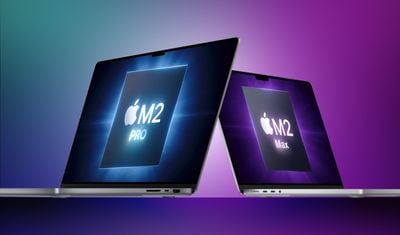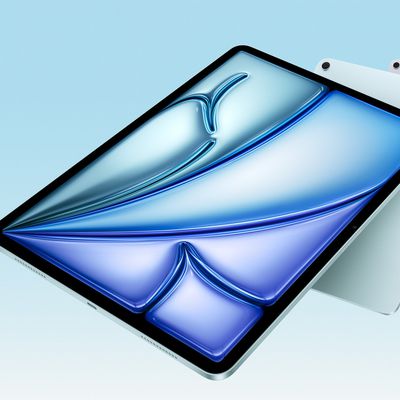Next-Generation MacBook Pros Rumored to Feature 'Very High-Bandwidth' RAM
Apple's next-generation 14-inch and 16-inch MacBook Pro models with M2 Pro and M2 Max chips will be equipped with "very high-bandwidth, high-speed RAM," according to information shared by MacRumors Forums member Amethyst, who accurately revealed details about the Mac Studio and Studio Display before those products were announced.

The current 14-inch and 16-inch MacBook Pro models are equipped with LPDDR5 RAM from Samsung, with the M1 Pro chip providing up to 200 GB/s of memory bandwidth and the M1 Max chip topping out at 400 GB/s. On a speculative basis, it is possible that the next MacBook Pro models could be equipped with Samsung's latest LPDDR5X RAM for up to 33% increased memory bandwidth with up to 20% less power consumption. This would result in up to 300 GB/s memory bandwidth for the M2 Pro and up to 600 GB/s for the M2 Max.
Bloomberg's Mark Gurman expects the next MacBook Pros to have few other changes beyond the M2 Pro and M2 Max chips. At this point, it seems likely that the laptops will be announced in November at the earliest with press releases on the Apple Newsroom site. Apple has launched new Macs in November multiple times in recent years, including the original 16-inch MacBook Pro in 2019 and the first three Macs with the M1 chip in 2020.
The current 14-inch and 16-inch MacBook Pro models with the M1 Pro and M1 Max chips were released in October 2021 and featured a complete redesign with a notch in the display and additional ports like HDMI, MagSafe, and an SD card reader.
Popular Stories
Apple plans to release an iPhone 17e and an iPad Air with an M4 chip "in the coming weeks," according to the latest word from Bloomberg's Mark Gurman.
"Apple retail employees say that inventory of the iPhone 16e has basically dried out and the iPad Air is seeing shortages as well," said Gurman. "I've been expecting new versions of both (iPhone 17e and M4 iPad Air) in the coming weeks."...
Apple plans to launch a rebranded "Sales Coach" app on the iPhone and iPad later this month, according to a source familiar with the matter.
"Sales Coach" will arrive as an update to Apple's existing "SEED" app, and it will continue to provide sales tips and training resources to Apple Store and Apple Authorized Reseller employees around the world. For example, there are articles and videos...
Apple today announced a "special Apple Experience" in New York, London, and Shanghai, taking place on March 4, 2026 at 9:00am ET.
Apple invited select members of the media to the event in three major cities around the world. It is simply described as a "special Apple Experience," and there is no further information about what it may entail. The invitation features a 3D Apple logo design...
While the iPhone 18 Pro and iPhone 18 Pro Max are still seven months away, an analyst has revealed five new features the devices will allegedly have.
Rumored color options for the iPhone 18 Pro models
In a research note with investment firm GF Securities on Thursday, analyst Jeff Pu outlined the following upgrades for the iPhone 18 Pro models:
Smaller Dynamic Island: It has been rumored...
Apple has a long list of new products rumored for 2026, including a series of home products that will see the company establishing more of a presence in the smart home space. Robots are on the horizon for 2027, but the 2026 releases will be a little tamer.
HomePod mini
We're expecting a new HomePod mini 2 to launch at any time. Apple isn't going to update the device's design, but we could...






















